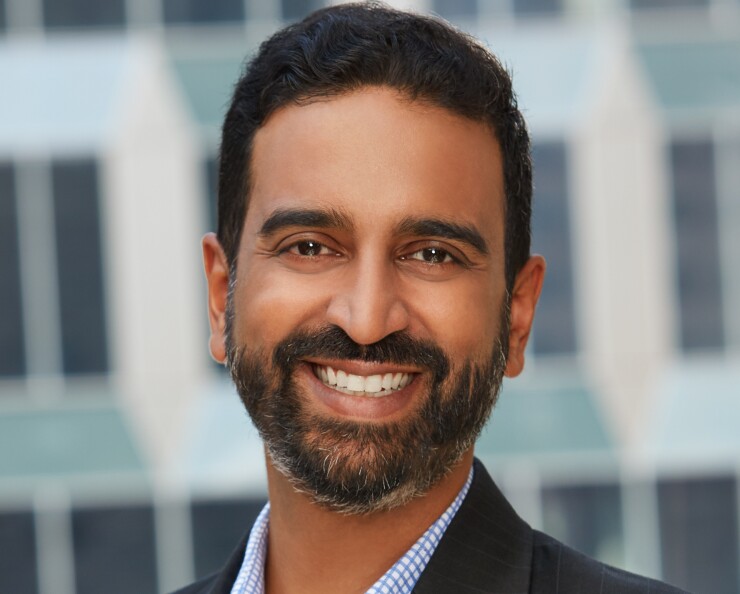A $141 million deal from Equitable Facilities Fund, a relatively new startup whose mission is “to make it easier, faster and less expensive for charter schools to put down roots in sustainable facilities,” will price Wednesday amid coronavirus threats and investor caution on charter school credit.
The deal from Equitable School Revolving Fund and being run by RBC Capital markets consists of $109 million of national charter school revolving loan fund revenue bonds for the Arizona Industrial Development Authority and $32 million for the California Infrastructure and Economic Development Bank.

The bonds have been given a “social” designation from Kestrel Verifiers. Social bonds are a burgeoning area in the municipal market as issuers and investors alike become more aware of the intrigue from a growing investor class that wants a signifier of how municipal bond proceeds are being spent.
“This is the next deal in our plans to provide equitable financing for all high-quality public charters — and we're doing it with an 'A' rated, credit-enhanced, long-term, scalable investment product," said CEO and founder of EFF, Anand Kesavan.
Tim Williams, managing director, head of public power & utilities group at RBC Capital Markets, the sole manager on the deal, said the charter school sector continues to perform and the "social" aspect of the deal makes it more compelling to investors.
He noted that while spreads are a little wider than the last deal the Fund sold in 2019, they have come back into the range of the last deal and are expected them to be tight for a S&P Global Ratings A-rated in the midst of a pandemic. The diversity of the credits, both in number of unique schools and geographically, as well makes for a compelling buy.
The Fund is providing money to 26 to 27 different schools across the country.
In premarketing documents, the $109 million is structured for bonds in 2021 with a 4% coupon to yield 0.38% (about plus 30 to AAA benchmarks) to 4s in 2050 set to yield about 103 basis points above AAA benchmarks at 2.30%.
The $32 million for California is 4% coupons in 2021 to yield 0.28%, or plus 20 basis points to benchmarks while the long bonds, 4s of 2050 at 2.15%, plus 88 basis points and 5s of 2055 to yield 2.25%, plus 98 basis points.
“Also with so much money and so many investors out there chasing assets, this deal is one that has a solid footing and is backed by philanthropic funding, so it makes sense for investors to come into it," he said.
The diversity of the credits, geographically, as well makes for a good buy, Williams said.
The Fund is providing money to many different schools across the country and it has “dozens more in the hopper,” Kesavan said, adding that its median schools are outperforming their districts by 150%, been around for 17 years, have 100-plus days cash on hand and over 1.5 times coverage.
The deal is being priced amid the coronavirus crisis in which many schools across the country are debating whether to reopen, attempting to find new money to invest in virtual learning and the safety of their students.
The risk of default in the sector is about 4%, however participants in the deal note that “even if you think the default rate would double, we have a much more robust threshold of 46% to repay investors if one of our schools would default. The bondholders still get paid and that seems to be a value proposition for our investors,” Kesavan said.
“The ‘A’ rating gets us in the door but the 46% cushion settles investor concerns in uncertain times.”
While some in the municipal industry are skeptical of the charter school systems — and many are junk-rated deals — EFF
The organization is a 501c(3) and the $200 million equity in the company plus all loan repayments is slated to pay debt service. Kesavan is planning more fundraising for the fund in the future from high net worth individuals and philanthropists.
“What our diligence process looks like, that’s a differentiating factor,” Kesavan said.
That differentiation in diligence, plus the philanthropic equity, is what EFF provides a buffer for investors in the event of a default of any of the schools they fund, he said.
Kesavan said the Fund stepped up in the second quarter when the market was in disarray and they lent “pretty aggressively.”
“We were making a market when there wasn’t one,” he said.
“We’re getting much more investor inquiry on credit in general and we think investors are asking the right questions now in this environment,” Kesavan said.
He said the fund focuses on three social impact pillars: educational equality, racial equality — “our schools serve predominantly African American and Latinx populations” — and social equality, “Our schools service predominantly high ‘free and reduced lunch’ populations,” he said.
“The interest from continued funders and philanthropists — the high social impact of our model by putting more money into the nation's best public schools, combined with the sustainable and recyclable aspect, makes us one of the highest-impact philanthropic investments out there for donors,” Kesavan said.





